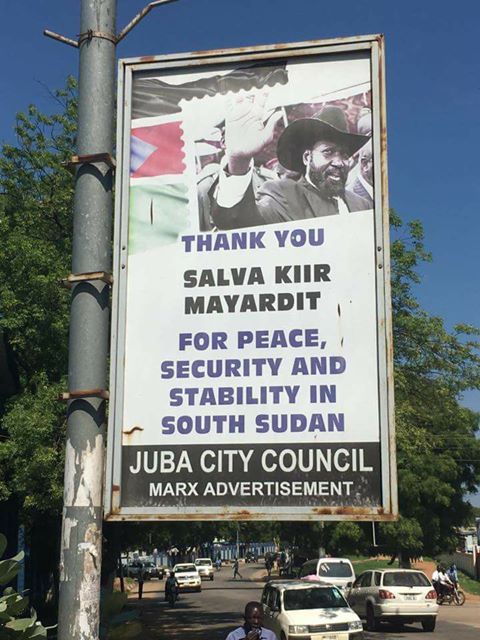The Office of the President under the Transitional Constitution, 2011 (Amended 2015): Is it a Cultivation of a Hegemonic Presidency in South Sudan?
By Tong Kot Kuocnin, Juba, South Sudan

I. Introduction
Wednesday, July 17, 2019 (PW) —- A country’s constitution plays the major role in ensuring constitutionalism since it creates and allocates powers to the institutions of government and also seeks to control and/or restrain the exercise of such powers. It is noteworthy that state institutions comprise the Executive; the Judiciary and the Legislature.
This article analyses the role of the constitution in checking the powers of the president (who heads the Executive) in order to achieve constitutionalism in a democratic state. It singles out the office of the president (presidency) as it yields more powers compared to the other institutions and hence has crucial impact on constitutionalism, good governance and the rule of law. The article discusses and focuses on the office of the president under the TCSS, 2011 (Amended 2015) to highlight how the unchecked presidential powers which continue to stifle constitutionalism in South Sudan.
This article first gives the general introduction and background before analyzing the office of the president as enshrined under the Interim Constitution of Southern Sudan, 2005 and the TCSS, 2011 (Amended 2015). It will also discuss to ascertain whether or not the office of the president (presidency) is a hegemonic presidency. However, before it concludes, the article will discuss and examines the cultivation of a hegemonic office of the president (presidency) under the constitution of South Sudan, 2011 in correlation to the Interim Constitution of Southern Sudan, 2005.
(more…)





















Misconception About Rwanda Genocide and the South Sudanese Agitation
Posted: August 1, 2019 by PaanLuel Wël Media Ltd. in Commentary, Contributing Writers, Dut Deng Kok, law, Opinion Articles, Opinion WritersBy Dut Deng Kok, Juba, South Sudan
Thursday, August 1, 2019 (PW) — After the genocide experience in 1994, Rwanda continues. In remembering its dead population during the ugly tragedy, a museum was created in their honor with a bold inscription written on it ‘’Never Again’’. This is the best that has happened to those victims of human cruelty.
With the above understanding, it has become imperative for we at the Foundation for Peace Professionals to re-direct a certain misconception about the Rwanda genocide that is being thrown around by analysts, when they are commenting on the implication of ethnic based secessionist hate in South Sudan, which may lead to similar thing as experienced in Rwanda.
While most commentators are right in quickly referring to the Rwanda Genocide experience in other to caution agitators about the consequences of their actions, it is important to bring us to another perspective that is yet to be properly looked at and fully appreciated.
In 1994, when the ethnic based hate campaign began in Rwanda, the total population of the country was just a little over 6 million.
(more…)Share this: